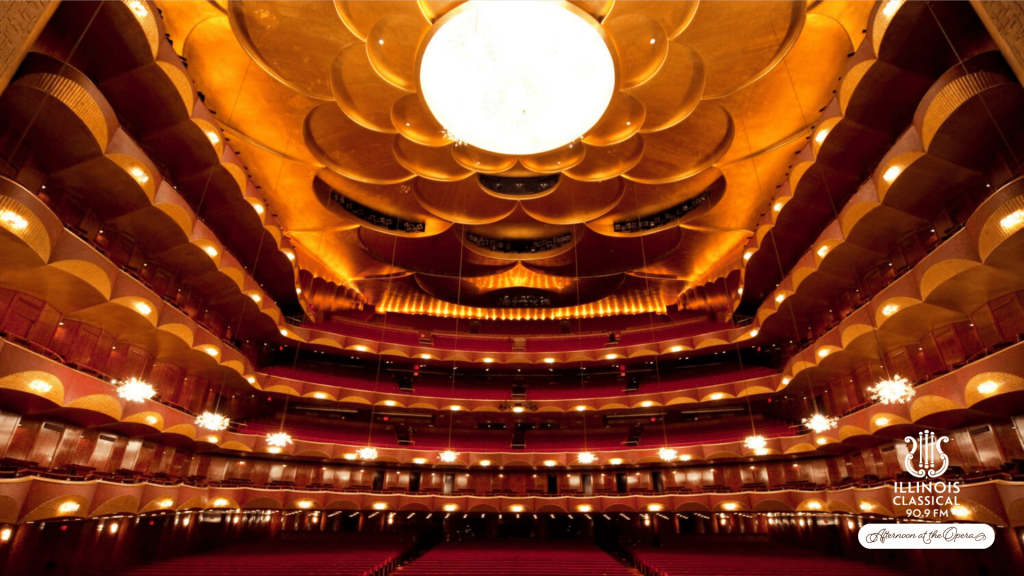Afternoon at the Opera: Louise by Gustave Charpentier

The Metropolitan Opera House of New York The Metropolitan Opera
Listen to Illinois Classical every Saturday at Noon, for The Metropolitan Opera hosted by Debra Lew Harder.
Louise (premiered in 1900) is a French opera in four acts, set in Paris. It tells the story of a working-class girl’s struggle between love and family duty and her yearning for freedom and artistic life in the bohemian world of Montmartre.
Act I
Setting: The modest home of Louise’s parents in Paris.
Louise lives with her domineering mother and gentle but weary father, both tailoring workers. She’s in love with Julien, a young artist who lives nearby. Her mother disapproves of him, viewing him as irresponsible and a threat to their daughter’s stability. Julien and Louise declare their love, dreaming of a free life together in the artistic world of Montmartre. But her mother insists she stay home, devoted to family duty.
Act II
Setting: A lively scene in Montmartre, full of artists, workers, and revelers.
Julien convinces Louise to join him in his carefree, bohemian circle. The neighborhood bursts with color, song, and Parisian energy — a celebration of liberty and love. Louise feels the thrill of independence for the first time. Julien sings of their future together, calling her his “Muse.” The act ends in joy as Louise agrees to live with him, defying her parents’ wishes.
Act III
Setting: The apartment where Louise and Julien now live together.
Louise is radiant in her new life of love and freedom, surrounded by the vitality of Paris. However, her happiness is interrupted when her father visits, heartbroken and lonely without her. He pleads for her to return home, describing her mother’s illness and sorrow. Torn between love and guilt, Louise finally agrees to go back — though her heart remains with Julien.
Act IV
Setting: Back at her parents’ home.
Louise feels trapped again in the suffocating domestic atmosphere. Her mother, embittered and controlling, rejoices in having her daughter back under her authority. When Louise hears the joyful sounds of Montmartre outside, she’s overwhelmed by longing for her freedom and for Julien. After a heated confrontation with her mother, she rushes out to rejoin the bohemian life — her father’s anguished cry (“Ma fille! ma fille!”) closes the opera, filled with pain and despair.
Themes
The conflict between love and family duty
The yearning for personal freedom
The seductive allure of bohemian Paris
The social struggle of the working class

